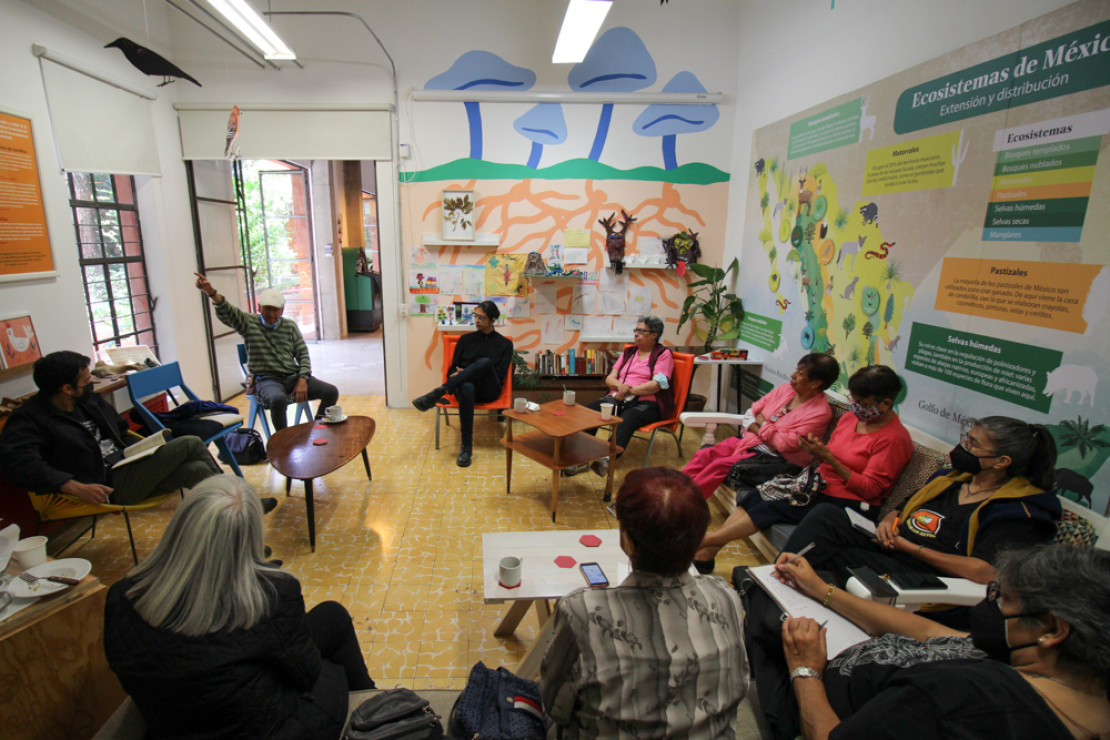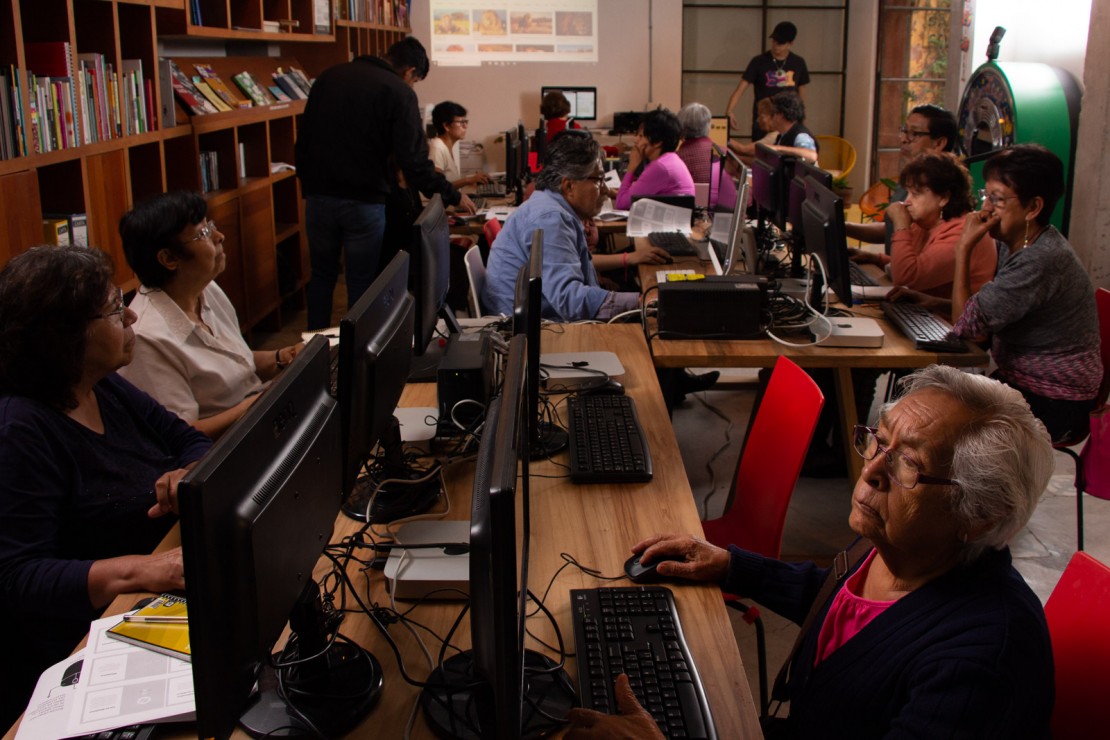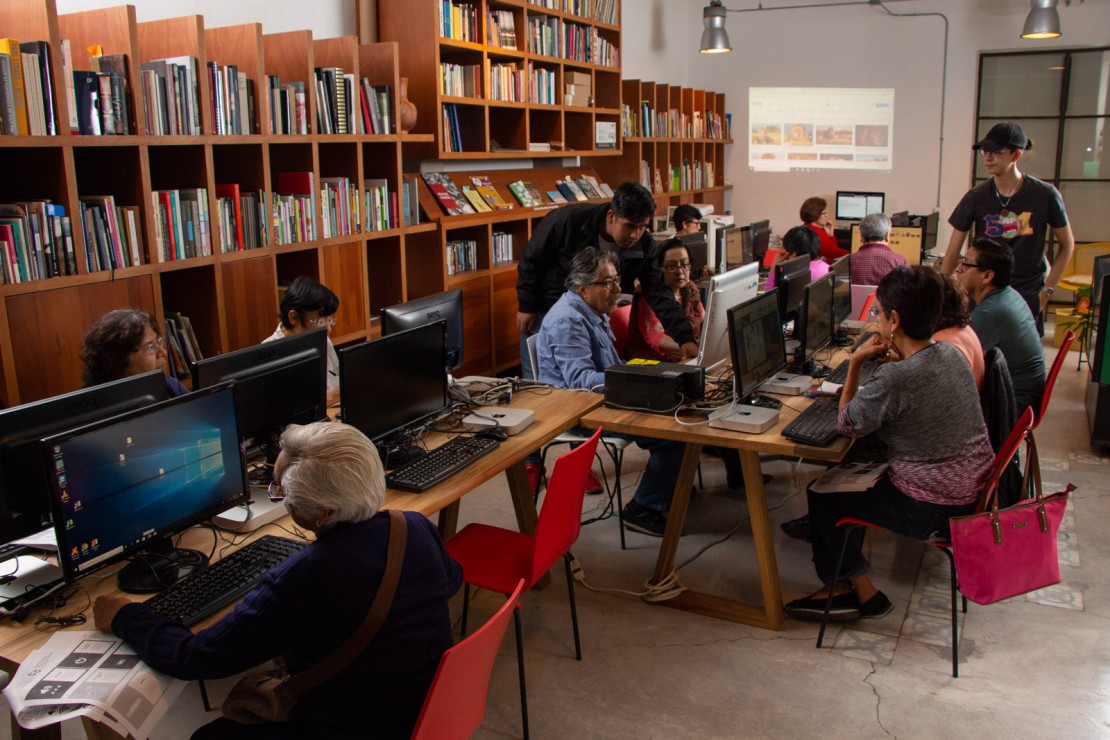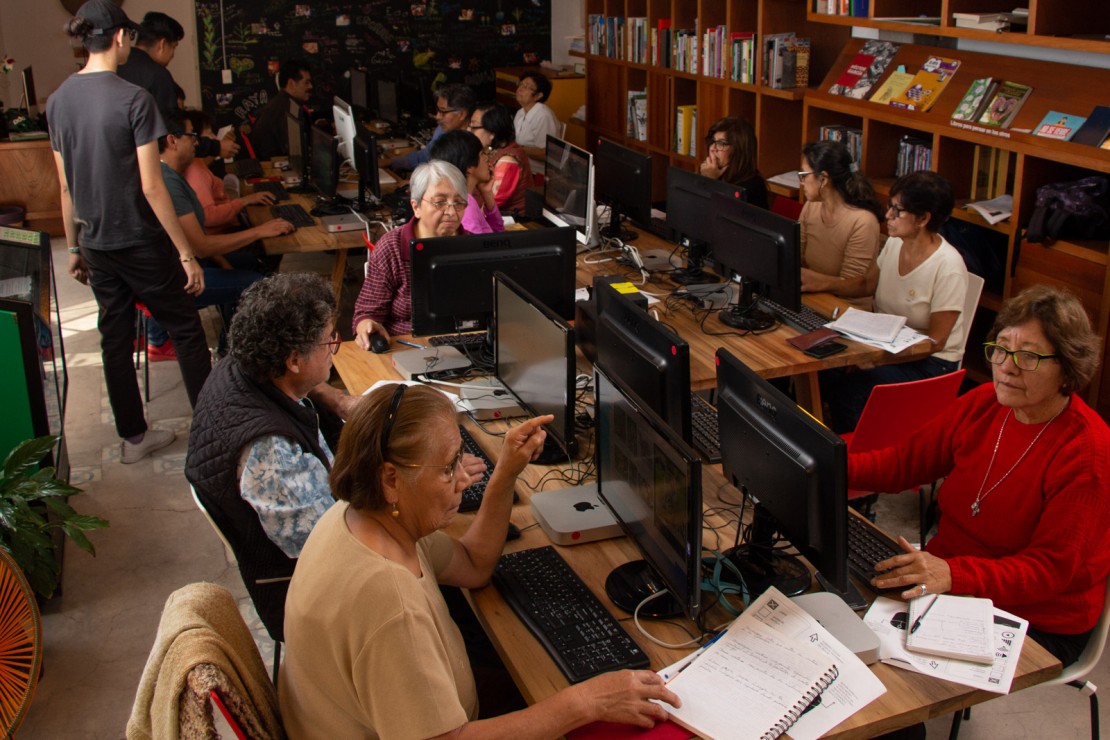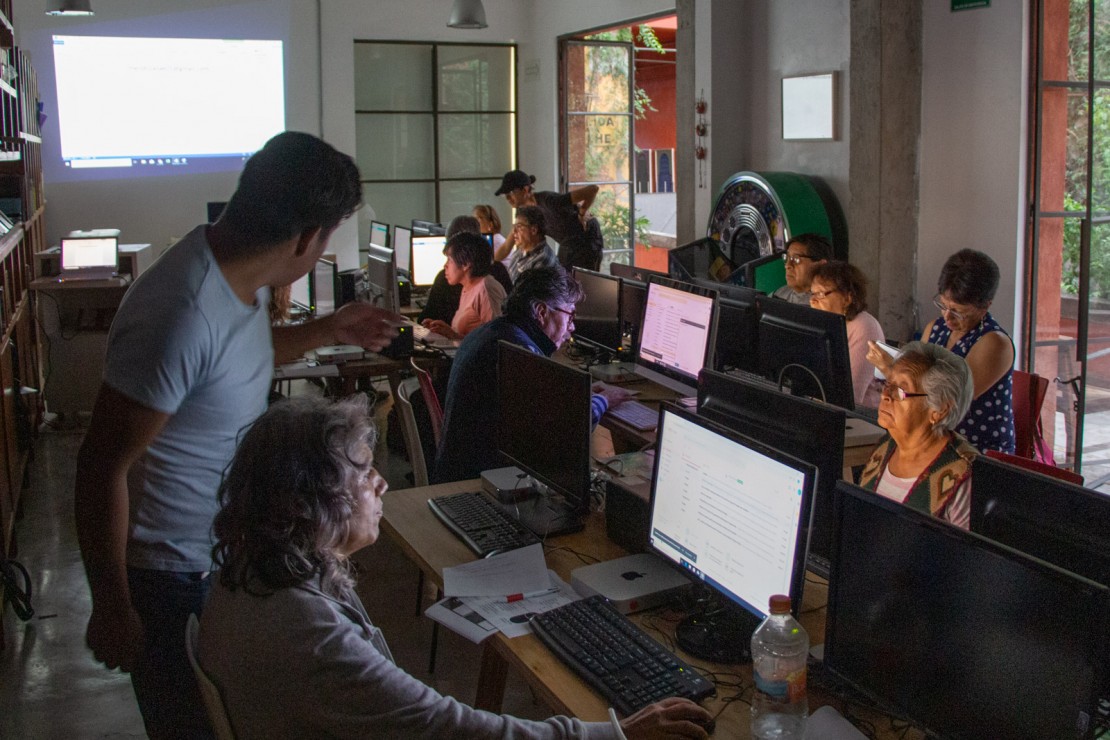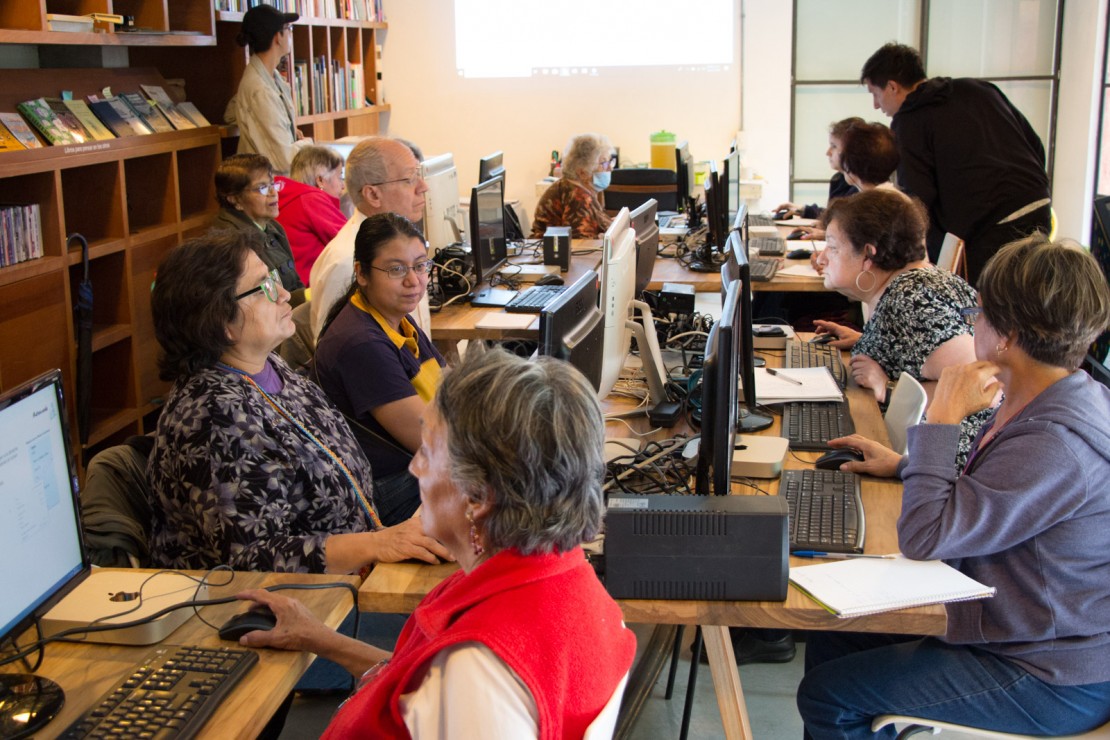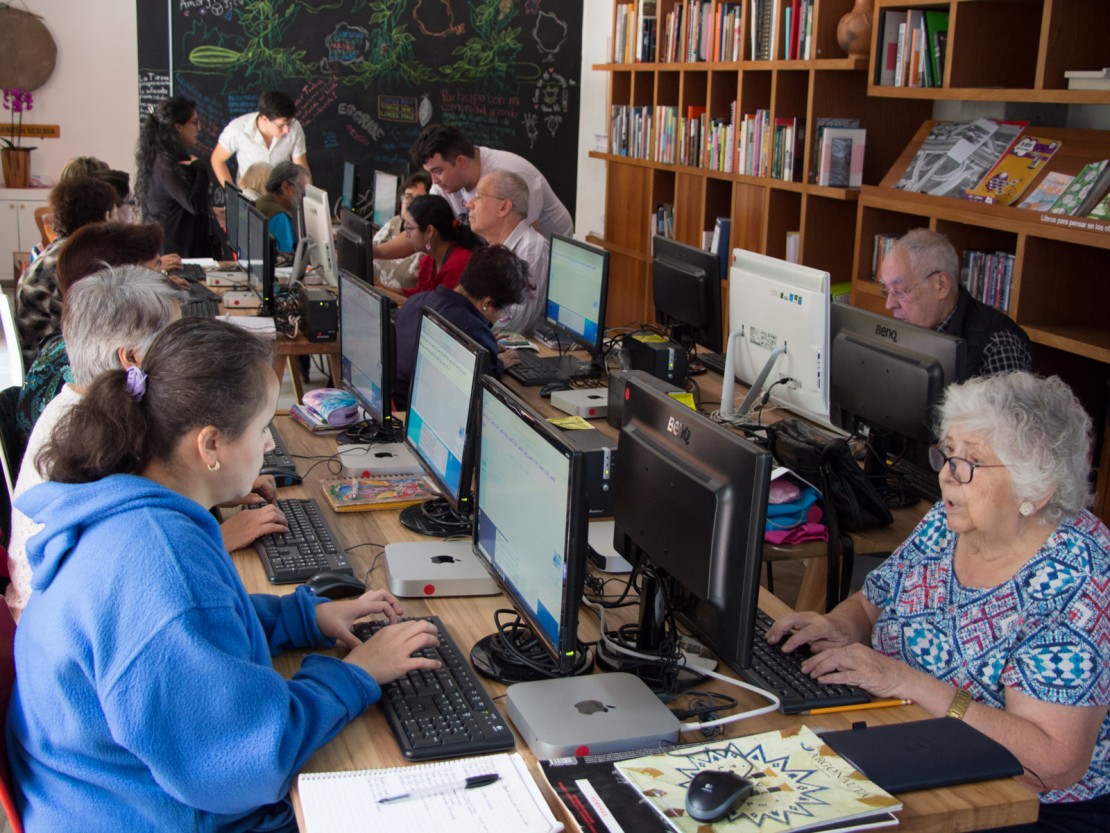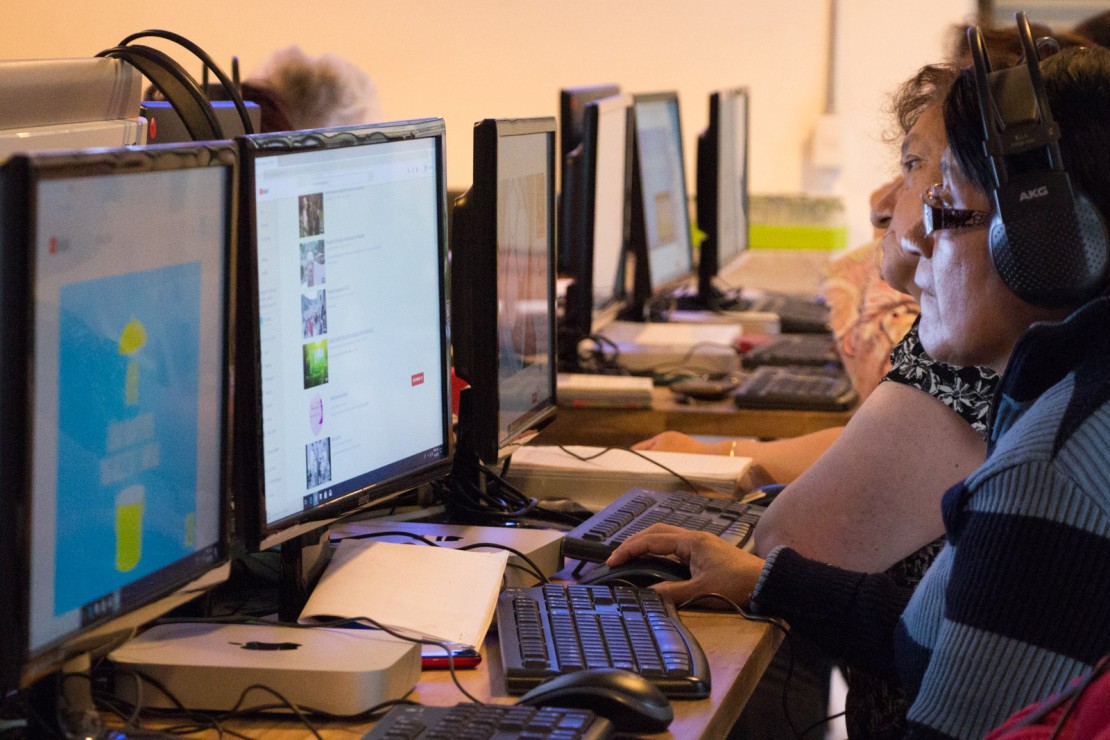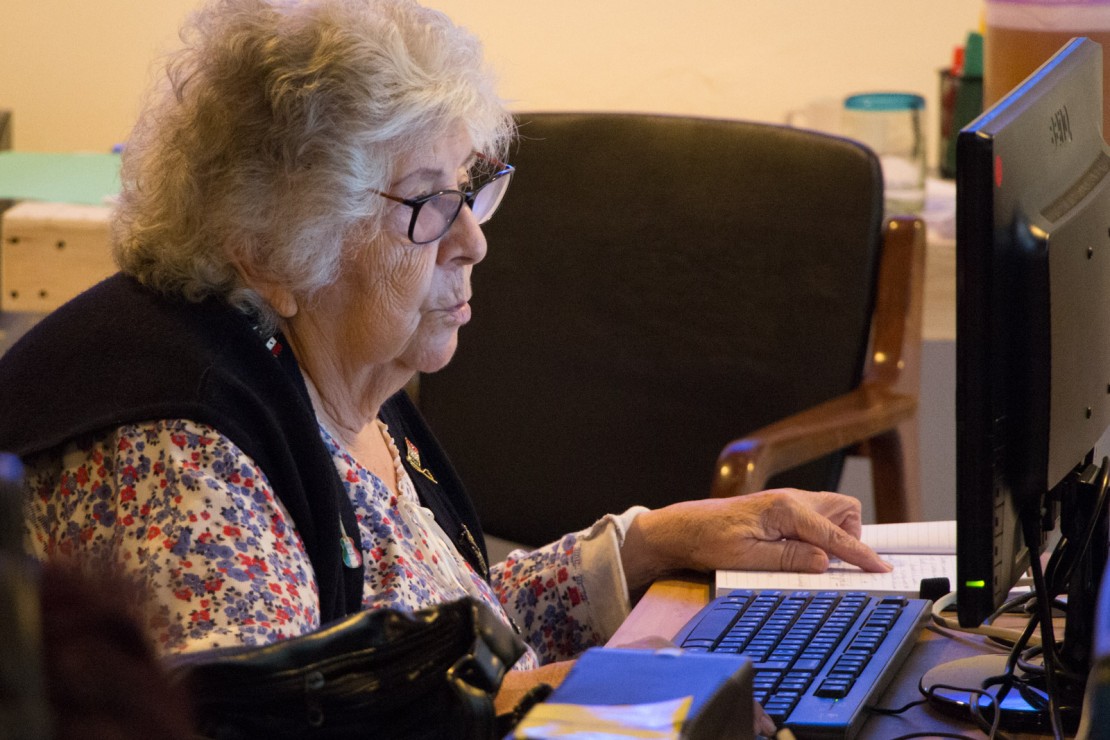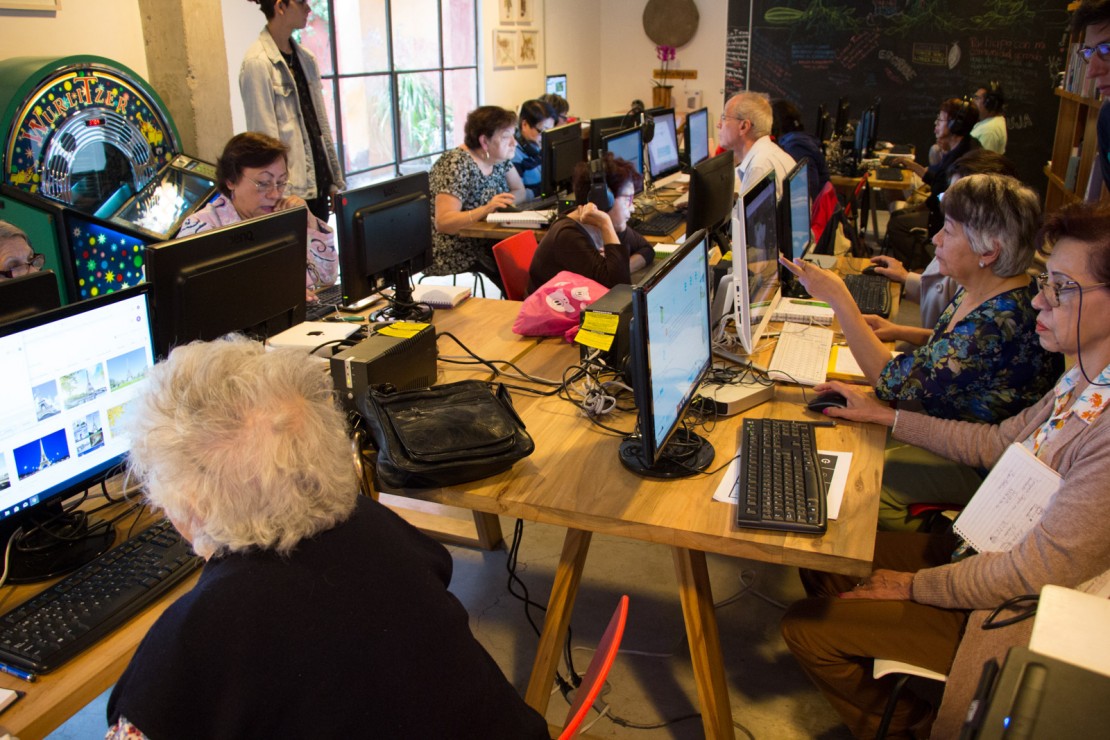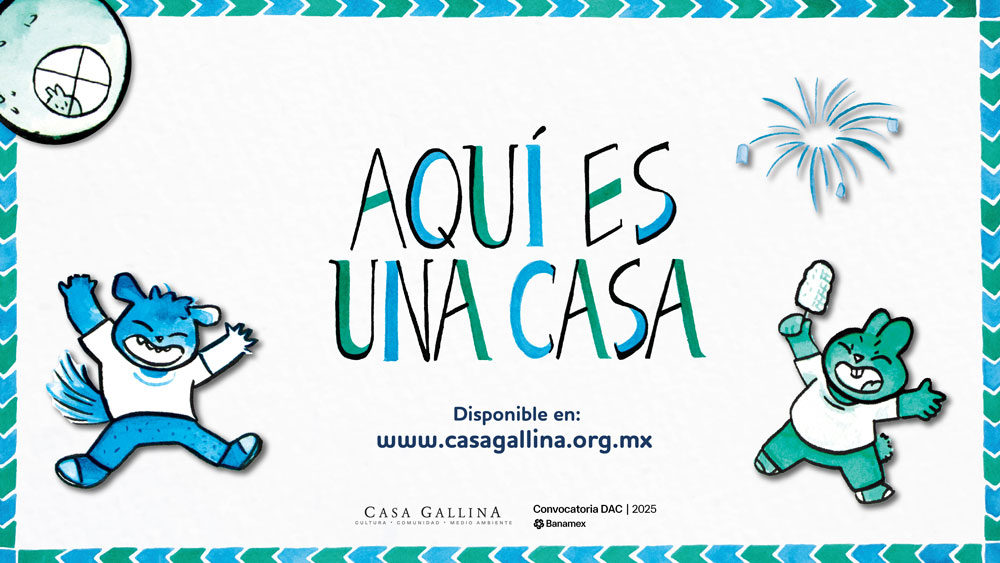Inter-generational Knowledge and Informal Educational Processes
The teacher-student hierarchy is constantly called into question by inviting neighbors to give workshops, courses and talks, and assume the role of professors/facilitators in work circles—roles that many of them have never played—, in an attempt to articulate and share their knowledge, and incorporate it into the daily life of their community. At the same time, these dynamics foster the re-adaptation of knowledge, making them versatile tools in the rescue of certain practices and the reappraisal of others, whose potential to bring about transformation and encourage interaction is not recognized by conventional systems that dictate what and how we should learn.
Accessible Digitalism - Digital Devices, Digital Security and Basic Use of Social Media
Date - January 20 to April 28
Facilitated by - Emiliano Mendoza
Participants - 64 inhabitants of Santa Maria la Ribera
This activity —which was designed in modules to facilitate learning with digital devices— consisted of an introduction to basic tools to use a computer and navigate online.
The participants expressed their daily needs to carry out procedures using devices such as cellphones, for which they continued their learning process in a second module focussed on digital security. A third module explored interactions on social media and basic artificial intelligence tools to manage daily activities, according to their interests and needs.
The workshop will continue with modules that enable follow-up and advances in safe use of equipment in the digital world.
Family Album
Date: 4 and 25 July and from 5 to 26 September, 2024
Facilitated by: Adolfo Córdova and Mariela Sancari
Participants: 13 inhabitants of Santa Maria la Ribera
Conversation sessions were held with elderly inhabitants of the neighborhood on their family albums and the events registered in the photos, as well as stories that are not visible on these images. A collective publication on these memories was created, and some tools for self-publication were shared, so each participant could develop a personal album with some writing exercises.
Online Safety
Date: 20 May and 3 June, 2024
Facilitated by: Ana Escutia
Participants: 10 inhabitants of Santa Maria la Ribera
Participants in this workshop learned about tools that devices offer and the risks of Internet surfing. From the use of banking apps to the verification of fake news, they became involved in ways to make their user experience much safer and more effective. To conclude, they talked about the need to use mobile devices and the possibility of digitally disconnecting to have a more balanced relationship with these technologies.
Street Games
Dates: November 2023
Facilitated by: Moisés Ledesma
Participants: 22 girls and boys from Santa María la Ribera
Format: in-person
A workshop that recreated games that used to be played in the street. Three of them (hopscotch, pitch and toss, and tic-tac-toe) were taken to the neighborhood’s streets for people to interact and enjoy themselves.
Collage Calendars
Dates: November 7 and 9, 2023
Facilitated by: Moises Ledesma
Participants: 32 girls and boys from Santa Maria la Ribera
Format: in-person
As a tool to promote the communal support, girls and boys created their own calendars for the year 2024. These were acquired by neighbors in exchange for a donation to the collective fundraising campaign Recreate.
Vegetable Sensorama
Date: July 19, 2023
Coordinated by: Casa Gallina
Facilitated by: Itzi Figueroa
Participants: 22 neighbors from Santa María la Ribera
An experience where preschool children and their families used their senses to review different ingredients in the Casa Gallina orchard, to foster links of affection and sensorial memory in a natural environment.
Reading Festival - Roberto Project
July 13 and 14, 2023
Coordinated by: Casa Gallina
Facilitated by: Moisés Ledesma and Andrea Ferrer
Participants: 111 inhabitants of Zacatlan and Cuacuila , state of Puebla.
In the framework of the 13th Roberto Foundation Reading Festival, Casa Gallina gave talks and workshops in the community centers this organization runs in Cuacuila and Zacatlan, in Puebla, which are aimed at education, the environment and the health of communities in the area.
Meeting: People over 60
Date: August 6, 2022
Participants: 9 elderly inhabitants of Santa María la Ribera
Format: in-person
On Saturday August 6, some of the people who received individual coaching in the use of cellphones and computers at Casa Gallina gathered to meet each other, talk about their learning processes and consider possible ways to form a group so as to share their knowledge and life experiences, notably with Santa María la Ribera’s children .
Digital Migrants: Permanent computer skills and mobile devices program
Dates: January 2019 - April 2024
Facilitators: Dalila Martínez Sosa, Emiliano Mendoza, Miguel Sierra and Sebastián Navarro
Participants: 166 senior citizens
This platform maintains a constant space without fixed programming that brings older adults closer to the use of digital technologies. The lessons given are related to the specific needs of each participant and are taught by a group of young neighbors between the ages of fifteen and twenty-five who do not have specific training in teaching or the advanced systems. In this platform the neighbors find themselves in processes of dialogue with their peers from other generations and an intergenerational exchange of knowledge that builds affections and networks is made possible. The tools learned allow them to problem solve and strengthen cooperation, work and business networks.
Digital Migrants: Introductory workshops in computer skills for daily tasks
Dates: July, September and October
Facilitators: Emiliano Mendoza, Miguel Sierra and Sebastián Navarro
Participants: 40 senior citizens
The basic use of digital technology workshops support the learning of introductory knowledge for adults who have never used a computer. The workshops help to familiarize the participants with the most common and practical uses of computers. The emphasis is on involving neighbors between fifteen and twenty-five years of age as instructors; they do not have specific training as teachers but do have basic computer knowledge obtained due to the generational situation in which they were born. The dynamic focuses on the effort they make to systematize their knowledge being an integral part of in a short-term program that tests their ability to share what they know and establish empathic ties with their neighbors from other generations.
